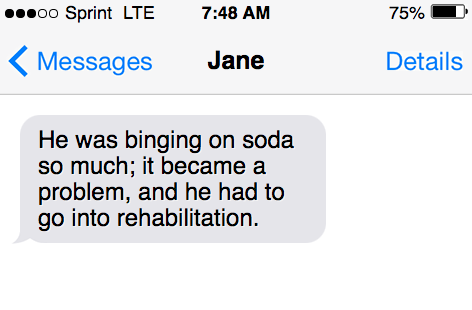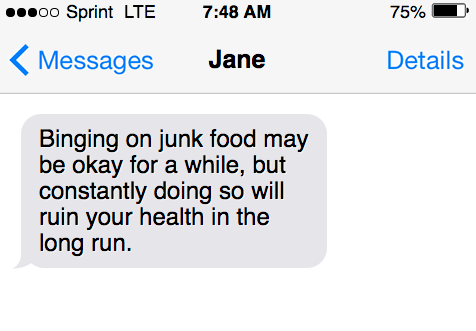Is it bingeing or binging? Which form is correct? There is a plethora of grammar and syntax rules to account for in the English language. Not to mention the intricate and often confusing rules that dictate speech and general writing.
Then there is the quandary that many people face with correct spelling. Furthermore, adding suffixes and prefixes, too. For instance, how do you add an “ing” to a word ending in a vowel?
A case in point can be the word “binge”. It ends with the vowel “e.” So, when you have to add “ing” to binge, does it change to “bingeing or binging”? Learn in this short grammar guide.
What does “binging” mean?
Before you go into the depths of how words ending with vowels change when you add suffixes to them, you should know the meanings of the words.
To binge fundamentally means to overdo something or overindulge for a short duration. For instance, if you are thinking of bingeing or binging on sweets, you want to gorge on sweets, indulging in overeating them.
| Word | Definition |
| Binging (verb) /binj/ | indulge in an activity – watch multiple episodes of a television program over a short period of time. |
What does “bingeing” mean?
Merriam-Webster defines binging and bingeing as, “indulge in an activity, to excess.”
The meanings of both words are the same, as, in effect, except for the “e” letter. The words “binging” and bingeing” do, in fact, mean the same thing.
Words that sound the same and have different spellings are called homophones. “Bingeing” and “binging” are great examples of a homophone.
Merriam-Webster states that both spellings are appropriate and correct.
Around the year 1980, the retention of the “e” gained some popularity, and it was [acceptable to be] included rather than excluded as we can see from the Google Ngram Viewer.

How to use the word “binging”
The appropriate and accurate use of the words “binging” and “bingeing” is seen in all English writing genres. Consequently, whether you put an “e” or not, remember that both are correct.
Examples in sentences
Here are some examples of the words as they are used in written form in English:
- You don’t have to be a health specialist to know bingeing on food like pizza, chips, and soda is bad for your body.
- He was binging on soda so much; it became a problem, and he had to go into rehabilitation.
- On holiday, many people relax by bingeing on movies.
- Binging on junk food may be okay for a while, but constantly doing so will ruin your health in the long run.
Is it “binging things on Netflix” or “bingeing things on Netflix”?
When you think about bingeing or binging, you may come across several instances of the word in memes, news articles, and social media.
A common way for people to refer to the fact that they watch a lot of shows and films on the popular Netflix streaming service is by using the word idiom “bingeing or binging on Netflix.”
This simply means that they watch a lot of films and shows, almost to the point of indulging in this activity most of the time.
Consequently, they may even say that they are “binge-watching” shows. Since bingeing and binging are both used interchangeably, you can use either of these words while referring to “bing(e)ing things on Netflix.”

Can bingeing be considered a disorder?
Anything you are “binging on” means that you are overdoing something.
If you are binge eating, you are overeating. Anything that could get deemed unhealthy and consumed in large volumes could be considered “bad.”
Bingeing or binging on anything harmful to your body (and mind) may be considered a disorder. According to the NHS of the UK and the Mayo Clinic, USA, binge eating is a disorder.
How to spell “bingeing” correctly
“Bingeing,” with an “e,” and “binging” without an “e” are both correct spellings that mean the same things (or have the same definitions).
Some experts argue that the “e” is better to use in the word as it indicates a soft “g” sound (of the letter preceding “e”).
Here are some examples of correct and incorrect spellings:
Examples of correct spelling
- She walked in on him while he was binging on a juice carton.
- While bingeing on several cups of tea daily, Sara didn’t realize she was overdoing the habit.
- Bingeing is never good for the body, regarding what you consume, there should always be a balance.
Examples of incorrect spelling
- Binjing is terrible for you, especially if you overdo it while eating fried food.
- If you keep binjing on juice this way, you will be a juice fiend.
Sources:
- Bingeing or Binging–Which Is Correct? | Grammarly
- Is It Bingeing or Binging? | Basic Spelling Distinctions (yourdictionary.com)
- Binge Definition & Meaning – Merriam-Webster
Inside this article
Fact checked:
Content is rigorously reviewed by a team of qualified and experienced fact checkers. Fact checkers review articles for factual accuracy, relevance, and timeliness. Learn more.
Core lessons
Glossary
- Abstract Noun
- Accusative Case
- Anecdote
- Antonym
- Active Sentence
- Adverb
- Adjective
- Allegory
- Alliteration
- Adjective Clause
- Adjective Phrase
- Ampersand
- Anastrophe
- Adverbial Clause
- Appositive Phrase
- Clause
- Compound Adjective
- Complex Sentence
- Compound Words
- Compound Predicate
- Common Noun
- Comparative Adjective
- Comparative and Superlative
- Compound Noun
- Compound Subject
- Compound Sentence
- Copular Verb
- Collective Noun
- Colloquialism
- Conciseness
- Consonance
- Conditional
- Concrete Noun
- Conjunction
- Conjugation
- Conditional Sentence
- Comma Splice
- Correlative Conjunction
- Coordinating Conjunction
- Coordinate Adjective
- Cumulative Adjective
- Dative Case
- Determiner
- Declarative Sentence
- Declarative Statement
- Direct Object Pronoun
- Direct Object
- Diction
- Diphthong
- Dangling Modifier
- Demonstrative Pronoun
- Demonstrative Adjective
- Direct Characterization
- Definite Article
- Doublespeak
- False Dilemma Fallacy
- Future Perfect Progressive
- Future Simple
- Future Perfect Continuous
- Future Perfect
- First Conditional
- Irregular Adjective
- Irregular Verb
- Imperative Sentence
- Indefinite Article
- Intransitive Verb
- Introductory Phrase
- Indefinite Pronoun
- Indirect Characterization
- Interrogative Sentence
- Intensive Pronoun
- Inanimate Object
- Indefinite Tense
- Infinitive Phrase
- Interjection
- Intensifier
- Infinitive
- Indicative Mood
- Participle
- Parallelism
- Prepositional Phrase
- Past Simple Tense
- Past Continuous Tense
- Past Perfect Tense
- Past Progressive Tense
- Present Simple Tense
- Present Perfect Tense
- Personal Pronoun
- Personification
- Persuasive Writing
- Parallel Structure
- Phrasal Verb
- Predicate Adjective
- Predicate Nominative
- Phonetic Language
- Plural Noun
- Punctuation
- Punctuation Marks
- Preposition
- Preposition of Place
- Parts of Speech
- Possessive Adjective
- Possessive Determiner
- Possessive Case
- Possessive Noun
- Proper Adjective
- Proper Noun
- Present Participle
- Prefix
- Predicate



